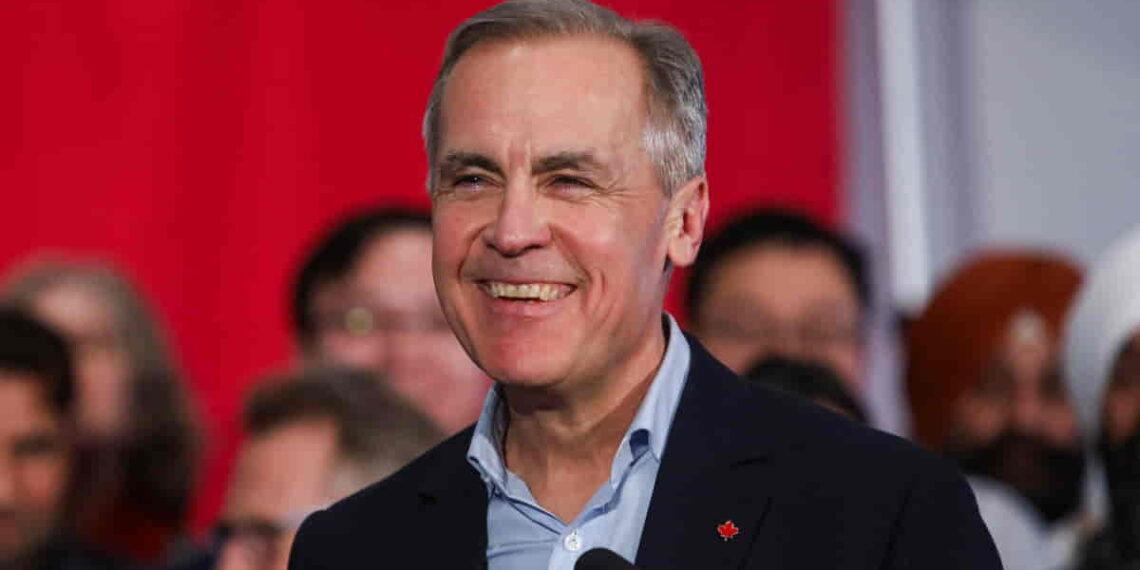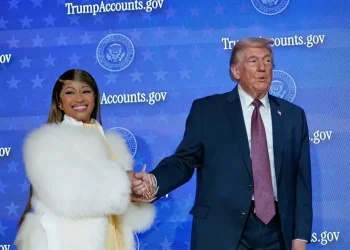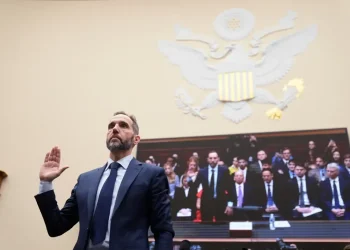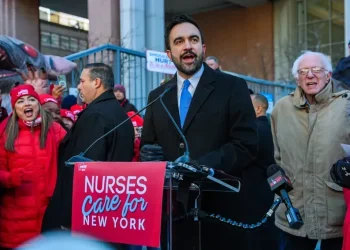Mark Carney Vows Canada Will Stand Firm Against Trump Tariffs
Mark Carney, the frontrunner in Canada’s race for prime minister, has strongly declared that Canada will “stand up to a bully” following U.S. President Donald Trump’s announcement of a 25% tariff on Canadian imports. Carney, a former governor of the Bank of Canada and the Bank of England, made these comments in an exclusive interview with BBC Newsnight.
Canada’s Retaliatory Response
In response to the new tariffs, Carney, who is seeking to become the next leader of the Liberal Party, stated that Canada would retaliate “dollar for dollar.” He emphasized that Canada would not back down, despite President Trump’s assumption that the country might concede. “We’re united and we will retaliate,” Carney affirmed, expressing his commitment to defending Canada’s interests.
Trump’s tariffs also include a 25% tax on imports from Mexico and 10% on China, but Carney made it clear that the U.S.’s actions would harm its own economy. “These tariffs are going to damage the U.S.’s reputation around the world,” Carney warned, citing potential negative effects on growth, inflation, and interest rates.
Political Landscape in Canada
Carney, who announced his bid for the leadership of the Liberal Party in January, is currently the leading candidate to succeed Prime Minister Justin Trudeau. Trudeau, who plans to resign after nine years in office, has been the party leader during a turbulent political climate, with the Liberal party currently trailing the Conservative Party in the polls. The leadership race concludes on March 9, and Carney has already garnered significant support from Liberal MPs.
The new prime minister will face a federal election by October 20, when Canadians will elect a new government. Carney’s comments signal his firm stance on international trade and his intention to protect Canadian interests.
Economic Impact of the Tariffs
Economists have raised concerns that the tariffs could severely impact Canada’s economy, especially in the short term. Higher costs for Canadian exports, including oil, could be a consequence, while U.S. consumers may also feel the burden through increased prices.
Carney also pointed out that this is the second time in less than a decade that the U.S. has disrupted trade agreements with Canada. The first instance came with the renegotiation of the North American Free Trade Agreement (NAFTA) into the United States-Mexico-Canada Agreement (USMCA), which came into effect in 2020.
Trump’s Trade Strategy
Tariffs have been a cornerstone of President Trump’s economic strategy. He believes they help grow the U.S. economy, protect American jobs, and raise government revenue. Despite this, critics argue that the new measures could backfire, particularly as they strain relations with key trading partners like Canada and Mexico.
Trump has also announced plans to impose tariffs on the European Union, claiming that the EU has not treated the U.S. fairly in trade negotiations. Meanwhile, Prime Minister Trudeau has vowed that Canada’s response to the new tariffs will be “forceful” and “immediate.”
Ongoing Trade Tensions
The ongoing trade tensions between the U.S. and Canada, along with the looming leadership transition in Canada, make this a pivotal moment for the country. With the federal election approaching and the political landscape in flux, how Carney and other candidates address these issues will likely shape Canada’s future economic and diplomatic policies.
This article was rewritten by JournosNews.com based on verified reporting from trusted sources. The content has been independently reviewed, fact-checked, and edited for accuracy, neutrality, tone, and global readability in accordance with Google News and AdSense standards.
All opinions, quotes, or statements from contributors, experts, or sourced organizations do not necessarily reflect the views of JournosNews.com. JournosNews.com maintains full editorial independence from any external funders, sponsors, or organizations.
Stay informed with JournosNews.com — your trusted source for verified global reporting and in-depth analysis. Follow us on Google News, BlueSky, and X for real-time updates.













